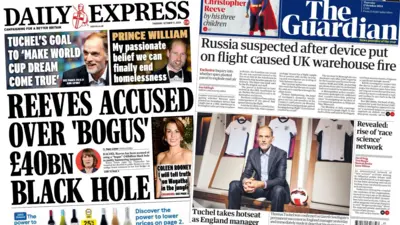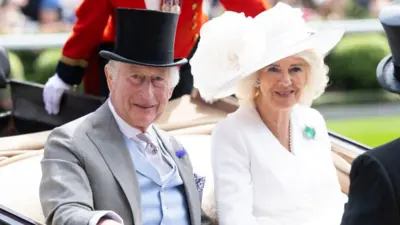We've updated our Privacy and Cookies Policy
We've made some important changes to our Privacy and Cookies Policy and we want you to know what this means for you and your data.
No consensus over pension 'triple-lock'
Image source, PA
Debate over the protection of state pension increases has been heightened with two former pensions ministers disagreeing on the issue.
The "triple-lock" policy has meant state pensions rise each year by the inflation rate, average earnings or 2.5% - whichever is highest.
Baroness Altmann, the pensions minister until last month, said its costs would become "enormous" - and proposed dropping the 2.5% guarantee.
Her predecessor said it must stay.
Steve Webb, the Liberal Democrat pensions minister in the coalition government, said the policy's ambition to recover lost ground in pension income had not been fully achieved.
A Downing Street spokesperson said it was still committed to the policy but did not comment on what might happen from 2020 - the timescale highlighted by Lady Altmann.
"The manifesto contains a commitment to protect the triple lock. That commitment still stands," the spokesperson said. In their 2015 election manifesto, the Conservatives promised to extend the triple lock until 2020.
Image source, Thinkstock
In her maiden speech in the House of Lords in June last year, Lady Altmann said: "With the introduction of the triple lock, the previous government helped to ensure that today's pensioners now receive the highest share of basic state pension relative to earnings in two decades, so that pensioners are protected even in tough times. I repeat the Prime Minister's commitment that this triple lock will be maintained during this Parliament."
On Sunday she said she had argued for alterations to the policy, but former Prime Minister David Cameron had blocked the change for political reasons.
"Absolutely we must protect pensioner incomes, but the 2.5% bit doesn't make sense," she said.
"If, for example, we went into a period of deflation where everything - both earnings and prices - was falling, then putting up pensions by 2.5% is a bit out of all proportion."
The triple lock had "fulfilled its purpose" and pensioner households were now "no more likely to be poor than other age groups", she said.
Pensioner poverty?
Yet, Mr Webb, now policy director for Royal London insurance company, told the ΒιΆΉΤΌΕΔ: "If you look at the pensioner population, half of them are too poor to pay income tax - that is the extent of the distance we have still got to travel and that is what the triple lock is about.
"You can't have a one-off surge in the state pension; it is an annual ratchet to try and get the pension to recover some of the lost ground of 30 years and that is a process that is far from complete."
He said that the UK still had "a pension that is still one of lowest in Europe". It is still below a third of average wages - seen as a benchmark by some for an adequate state pension.
"The idea that all of government policy has been pro-pensioner and anti-working age isn't borne out by the recent past," Mr Webb added.
Total pension spending has increased by 25% since 2010-11, and the independent Institute for Fiscal Studies (IFS) said that any long-term commitment to the triple-lock would be "unaffordable".
Carl Emmerson, deputy director of the IFS, said that the highs and lows of the UK economy would mean that the state pension would logically grow faster than earnings in general over the longer term.
He said that, although the state pension was lower in the UK than much of Europe, private pension provision was higher. Consequently, pensioners were not a relatively poor group.
Top Stories
More to explore
Most read
Content is not available








